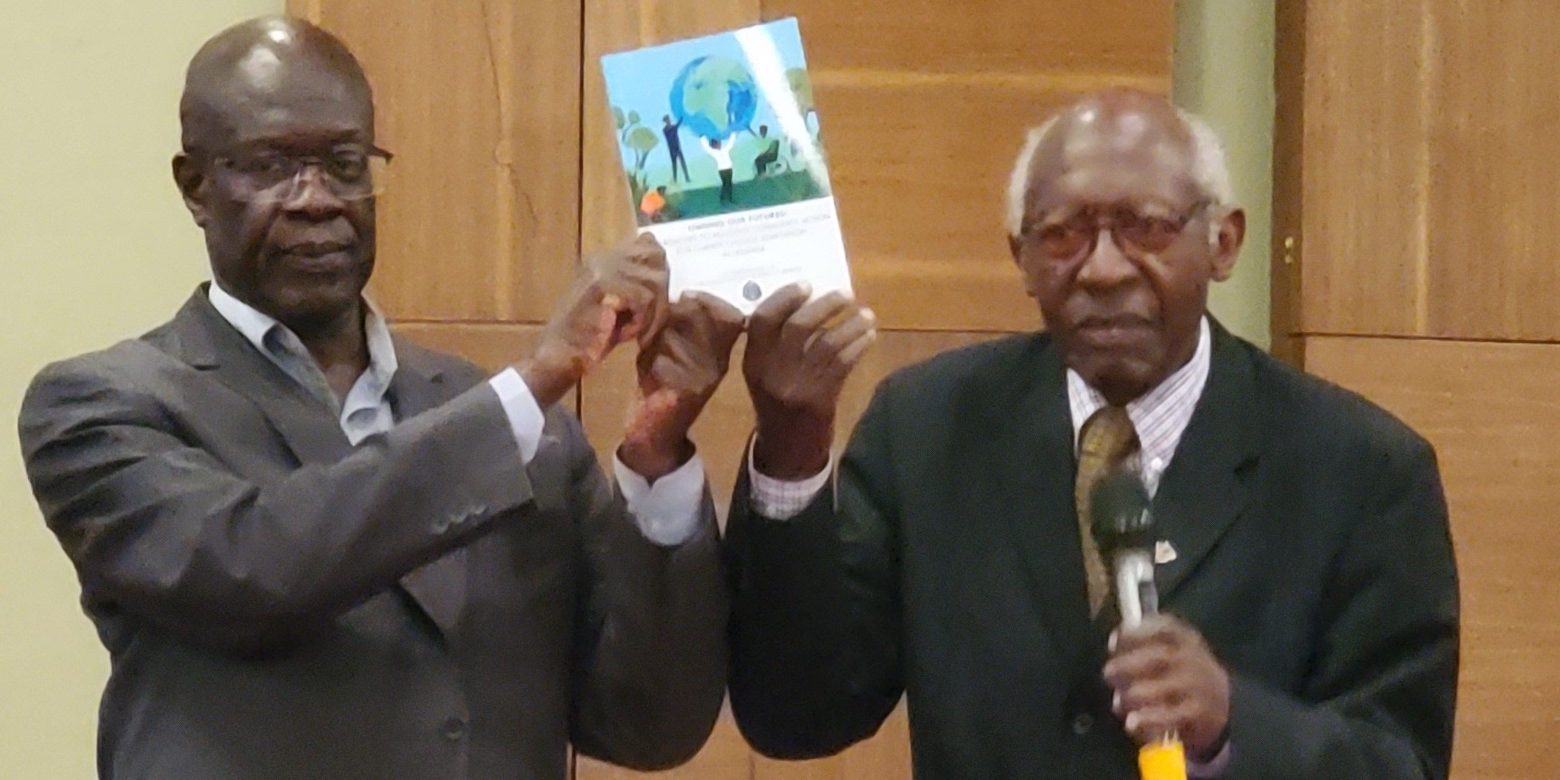By Esther Nakkazi
On October 24th, in Kampala, the Uganda National Academy of Sciences (UNAS) unveiled a consensus study on climate change titled “Approaches to Realizing Community Action for Climate Change Adaptation in Uganda.” This study delves into the various experiences related to community action for climate change adaptation.
The launch event featured examples illustrating how some individuals actively embody climate change awareness. Some of these instances were not only attention-grabbing but also infused with humor.
In 2009, Professor Nelson Sewankambo had a pivotal moment when he organized a groundbreaking climate change conference at Speke Resort Munyonyo in Kampala. The climate change conference, generously sponsored by a grant from Canada, drew around 500 attendees from Uganda and East Africa. Notably intentional, Professor Sewankambo ensured the inclusion of 70 young students, deliberately invited to foster an appreciation for climate change issues. The conference was graced by the esteemed presence of Professor Andre Haynes, a luminary in the realm of planetary health.
Reflecting on the strategic planning before the conference, Sewankambo shared, “Before the conference, I sat with the organizing team and wondered how we would send a punch message to the audience so that they begin to critically think about climate change.” The team concurred on two crucial points: a prohibition on plastic bottles and a commitment to a vegetarian diet for the entire five-day duration. As the conference’s convenor, Sewankambo explicitly instructed the Speke Resort Munyonyo management to serve water without using plastic bottles and to refrain from serving beef.
Grambling attendees made jokes: ”Professor you are poor. You can’t afford to serve us beef at such a big regional conference!” Despite the grumbling and jokes, the climate change message sunk.
The decision to exclude plastic bottles symbolized a commitment to environmental protection, while the abstention from serving beef underscored the link between animal agriculture and carbon emissions.
The success of the conference extended beyond its immediate impact. It became a catalyst for subsequent initiatives, including the sponsorship of individuals for climate change-related research and studies, fostering partnerships with Canadian universities. At the launch of the UNAS report, Sewankambo urged the audience to recognize the transformative potential of initiatives that emphasize the need to sustain the momentum for enduring change.
This landmark conference’s ripple effect continued through subsequent years, marking ongoing support for climate change research and initiatives.
Sewankambo emphasized the importance of “walking the talk” and encouraged sustained efforts in addressing climate change.
Peter Kibazo, Head of Communications and Marketing at Uganda Management Institute, shared another compelling example involving the late John Sebana Kizito, a former mayor of Kampala city from 1999 to 2006. As the mayor, he was invited to launch a road. However, upon inspecting the road the day before the launch, he observed a lack of trees. Expressing his environmental concerns, he declared that he wouldn’t launch the Rubaga/Wakaligga road unless trees were planted on either side. For sure trees were planted and the launch proceeded only after the trees were planted. Despite the initial resistance and some trees being devoured by goats some trees grew and they are providing a shade for boda boda riders and ‘Rolex’ chapati makers.
This act of individual passion, not mandated by policy, left a lasting impact, with surviving trees now providing shade for businesses.
Dan Kyazze, representing the Buganda Kingdom, highlighted the cultural bond connecting people’s culture with nature. This intrinsic connection serves as a formidable strength for the Buganda Kingdom, inspiring voluntary community action driven by cultural and spiritual well-being.
Kyazze specifically referenced the success of ‘Ekibira Kya Kabaka,’ an initiative strategically named to evoke the Buganda Kingdom’s image and branded by the king. This initiative involves planting a substantial area of indigenous trees, particularly those valued and demanded by the community. Currently, 354 acres have been designated for this purpose in various counties, serving as points of excellence that encourage community members to actively engage in the project.
These anecdotes underscore the transformative power of individual actions and cultural connections in fostering community-led and sustainable climate change adaptation initiatives.
Climate change adaptation requires inclusive, community-led, and sustainable adaptation initiatives. I wonder if any actions are happening at the COP28 in Dubai now. Grab yourself a copy of the Uganda National Academy of Science during this COP28 period!

